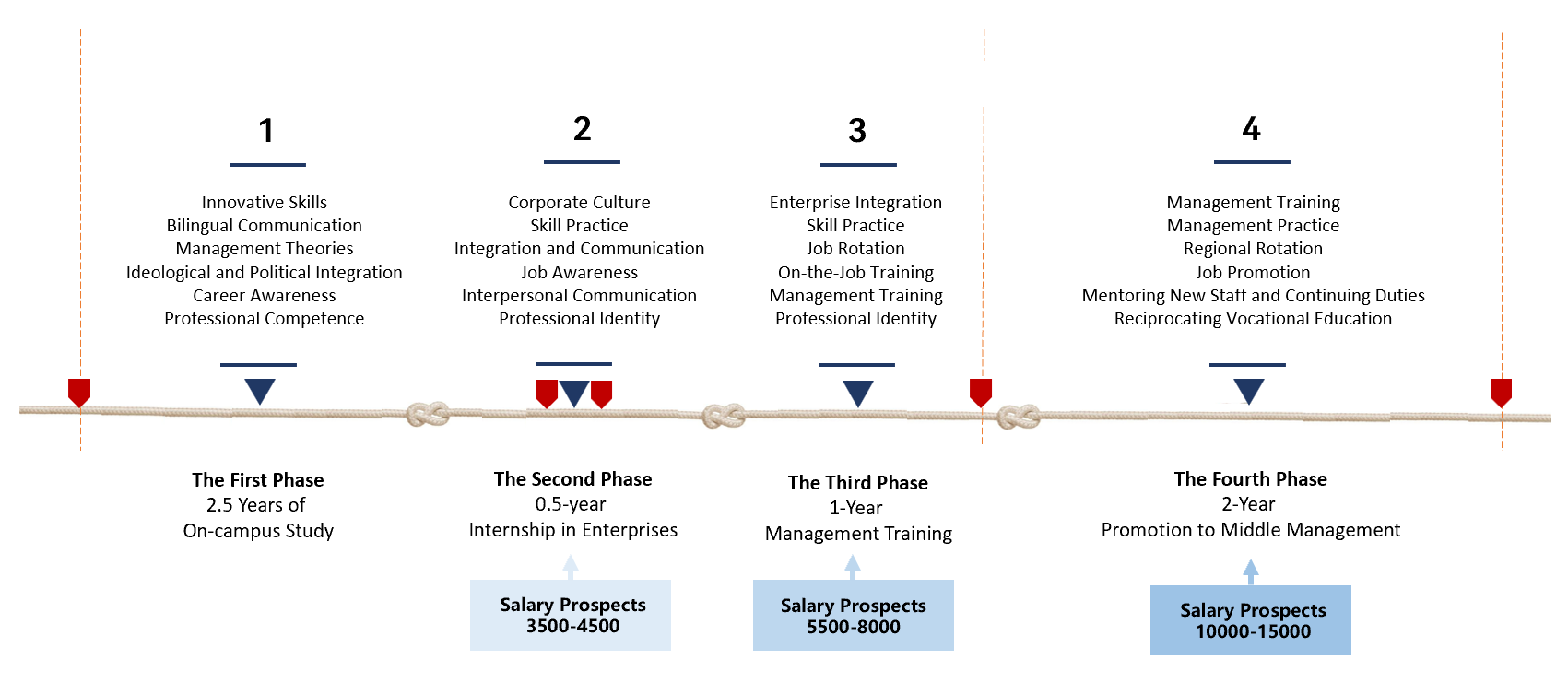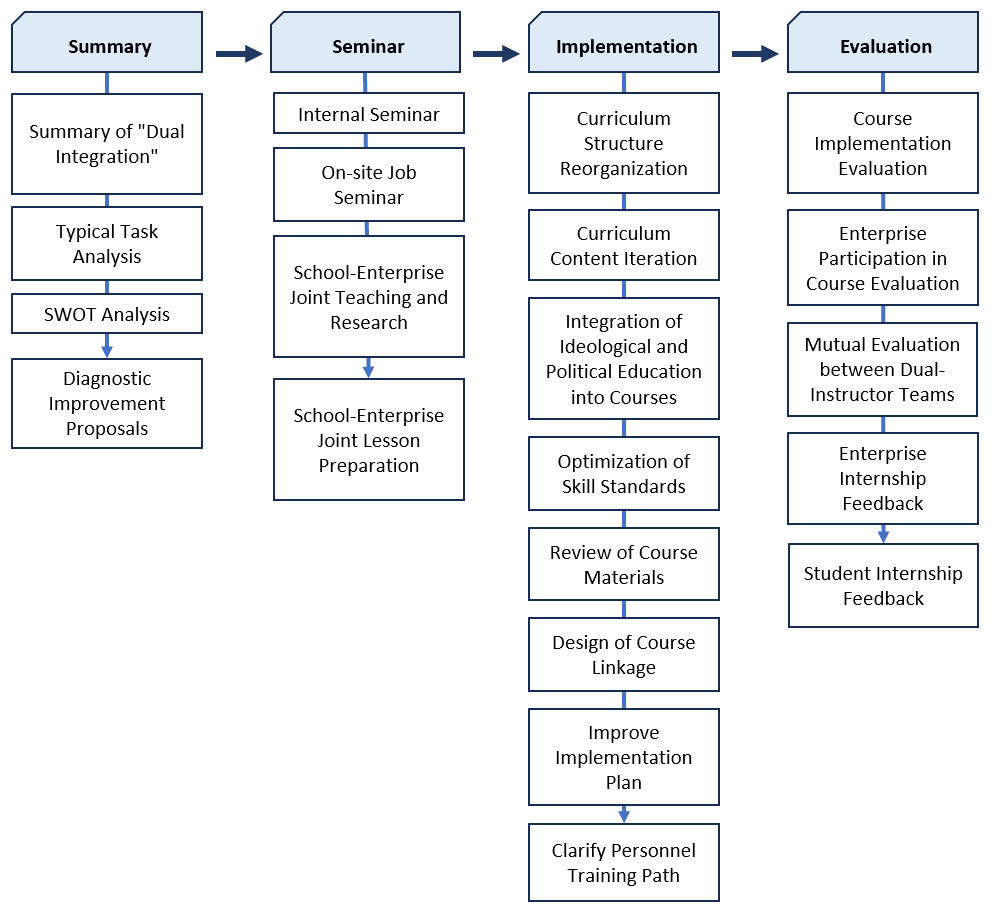Introduction
Research Background and Problem Statement
As the new development paradigm of "domestic circulation as the mainstay and mutual promotion between domestic and international circulations" advances further, the cultural tourism industry has emerged as a pivotal vehicle for cultural exchange and economic growth. According to data from the China Inbound Tourism Development Report 2024-2025 released by the China Tourism Academy, China welcomed a total of 131.9 million inbound tourists in 2024, marking a year-on-year increase of 61%. Against this backdrop, domestic brand hotels urgently need to attract foreign clientele through internationalized services to expand revenue streams, while international brand hotels must deepen their penetration into the domestic market through localized services to enhance competitiveness. However, in-depth research on domestic and international brand hotels across the country reveals that enterprises universally cite inadequate cross-cultural communication skills as the primary bottleneck hindering improvements in service quality.
As the primary front for cultivating highly skilled talent, vocational education must proactively align itself with industrial demands. However, current school-enterprise collaboration in vocational education still faces structural contradictions: traditional cooperation models predominantly exhibit a "school-enthusiastic, enterprise-apathetic" dynamic, with notable discrepancies between talent cultivation specifications and corporate requirements. Moreover, teaching content lags behind industry transformations, and students lack systematic training pathways for developing cultural integration capabilities and innovative service skills (He & Xu, 2012). Consequently, constructing an industry-education integration talent cultivation model that adapts to the new development paradigm of "dual circulation" and addresses the misalignment between the education chain and industrial chain has emerged as a pivotal proposition for vocational education reform.
Research Significance
Through the practical exploration of the "Triple Sharing, Dual Integration, and Four Transformations" model, this study deepens the interdisciplinary research framework integrating industry-education integration and cross-cultural education at the theoretical level, offering a novel perspective for the localized innovation of vocational education theories. At the practical level, it provides an actionable implementation pathway for deepening collaboration between vocational institutions and international and domestic brand hotels, thereby assisting enterprises in enhancing their service competitiveness within the new development paradigm of "dual circulation" while also serving as a representative case study for industry-education integration reforms in similar educational institutions.
Theoretical Foundations and Policy Basis
Theoretical Foundations
Community of Practice Theory. The Community of Practice (CoP) theory, proposed by Lave and Wenger in 1991, specifically refers to a social group characterized by shared goals, collective knowledge, and practical engagement. This theory emphasizes that learning is achieved through legitimate peripheral participation, wherein learners gradually evolve from peripheral participants to core practitioners by engaging in the authentic activities of a community of practice.
The Community of Practice (CoP) provides a methodological framework for collaborative symbiosis in vocational education. (Zhang, 2021) By leveraging the participatory and contextual nature of CoPs, it breaks down the boundaries between schools and enterprises, enabling precise alignment between talent cultivation and industrial demands, thereby fostering deep integration of industry and education. It incorporates cultural identity and professional ethics into authentic practice, avoiding the instrumental tendency of prioritizing skills over qualities, and reinforcing dual cultivation of values and skills. Through negotiation and collaboration among multiple stakeholders, it reduces governance costs while enhancing the adaptability and sustainability of the vocational education system. Additionally, by engaging in research-oriented CoPs, it promotes the dual enhancement of teachers' instructional and research capabilities, providing talent support for the high-quality development of vocational education.
The cultivation of interdisciplinary talents through vocational education in hotel management necessitates the simultaneous development of theoretical literacy, practical skills, and cross-cultural communication competence, heavily relying on authentic work scenarios and cross-cultural interactive contexts (Duan, 2023). The cross-cultural industry-education practice community, jointly constructed by schools and enterprises through resource sharing and active participation, offers a pivotal solution to address issues such as the disconnection between schools and enterprises and the inadequacy of practical abilities (Deng & Song, 2023). The logic of participation, practice, and identity construction inherent in the theory of communities of practice aligns closely with the requirements of vocational education in hotel management, as evidenced by the following aspects: Firstly, the ultimate goal of the community is consistent with that of vocational education, namely, cultivating highly skilled professionals capable of meeting the demands of complex job roles, thereby achieving a dual empowerment of creating value for enterprises and enabling student development. Secondly, the core tacit knowledge of hotel services, such as cross-cultural communication skills and experience in handling emergencies, requires transmission through internal interactions within the community, such as mentorship programs and case discussions. Thirdly, the competency in hotel services cannot be acquired solely through classroom instruction; instead, it must rely on a progressive participatory pathway of learning by doing. The community of practice precisely provides a mechanism for skill advancement, ranging from observation and imitation to independent operation.
Intercultural Education Theory. The intercultural education theory centers on Bennett's (1993) Developmental Model of Intercultural Sensitivity, emphasizing that intercultural competence necessitates coordinated cultivation across three dimensions: cognition, affect, and behavior. At the cognitive level, it requires an understanding of the underlying logic of cultural differences between the East and the West. At the affective level, learners should be guided to transition from cultural defensiveness to cultural empathy, enabling them to comprehend the cultural logic behind behaviors and foster an inclusive and open-minded attitude. At the behavioral level, learners need to be trained to flexibly adjust service strategies in real-world scenarios and master service skills that are adaptable to diverse cultural contexts.
Intercultural education represents both an inherent requirement for vocational education to adapt to the demands of globalization and a core practical pathway for serving the high-quality development of the Belt and Road Initiative and advancing the internationalization of education (Gao et al., 2024). Vocational education is tasked with cultivating high-caliber technical and skilled professionals who possess both a sense of national identity and an international perspective. Through enriching students' cross-cultural knowledge and enhancing their cross-cultural awareness, intercultural education improves their communication and collaboration capabilities in foreign work environments, enabling them to become familiar with international industry standards and technical specifications and to meet the needs of global industrial development. Additionally, by attracting international students from countries along the Belt and Road to receive intercultural education, it promotes Chinese technology and culture to the world, fostering skilled professionals who understand and appreciate China, thereby laying a foundation for international friendly cooperation.
Under the new development paradigm of "dual circulation," the hotel industry has set higher demands on service capabilities, which are specifically manifested in three-dimensional transformations: First, there is a diversification of service targets, necessitating the accommodation of foreign business travelers, cross-border tourist groups, and other customer segments from varied national, ethnic, and religious backgrounds. Second, service scenarios have become more complex, involving multidimensional cultural differences in language communication, etiquette norms, and consumption habits. Third, service objectives have been upgraded, shifting from merely completing service procedures to conveying cultural values and demonstrating China's cultural confidence through service delivery (Shi & Li, 2009). By conducting comparative analyses of service cases from domestic and international hotel enterprises, this study guides students in understanding multicultural differences and cultivates a cross-cultural service attitude characterized by confidence, inclusiveness, and self-respect without arrogance, which highly aligns with the core objectives of intercultural education.
Constructivism Learning Theory. Constructivism learning theory centers on Vygotsky's (1978) sociocultural theory, emphasizing that knowledge is not directly transmitted from external sources but is instead actively internalized by learners through social interactions. Its core components include context, collaboration, conversation, and meaning construction. Context serves as an anchor for knowledge construction, collaboration provides cognitive scaffolding, conversation facilitates cognitive conflicts and reflective revisions, and meaning construction ultimately culminates in the formation of core competencies such as cross-cultural service capabilities and innovative service thinking. Learning, in essence, is a dynamic process in which learners actively construct meaning based on their existing knowledge and experiences through interpersonal collaboration and conversational interactions within specific contexts.
Xiang et al. (2023), taking constructivist theory as the core, focused on the cultivation and enhancement of learning capacity among students in higher vocational education, and proposed reform pathways that involve stimulating motivation, improving abilities, and fostering innovation and generation. Drawing on the situational and proactive characteristics of constructivism, they designed a "Three-Loop Five-Step" teaching model. This model utilizes authentic occupational contexts to guide students in accomplishing knowledge transfer and skill internalization through task-based inquiry, thereby facilitating the transition from superficial learning to deep learning. Wan et al. (2023) concentrated on the optimization of information-based teaching for task-based curricula in vocational education, proposing specific pathways for contextual construction, resource development, and faculty training based on constructivist theory. Constructivism is applied to the three-dimensional creation of teaching contexts, supporting students' meaning-making through interactive, personalized, and inquiry-based learning spaces. Secondly, it emphasizes that the dynamic development of teaching resources should reflect contextuality, interactivity, and generativity. Grounded in the TPACK (Technological Pedagogical Content Knowledge) framework, constructivist teaching approaches are employed to assist teachers in acquiring integration capabilities, facilitating the transformation of information technology from a supporting tool into an intrinsic variable in teaching. This promotes the in-depth integration of information-based teaching with task-based curricula.
Vocational education in hotel management aims to cultivate highly skilled professionals capable of handling complex service scenarios and possessing cross-cultural communication abilities. Its core characteristics align closely with the logic of constructivism: Firstly, hotel services are highly dependent on specific contexts, necessitating that talent development occur within authentic or simulated settings. Secondly, service competencies are acquired through interactive practices with guests, colleagues, and corporate mentors. Thirdly, service challenges such as cross-cultural conflicts lack fixed solutions, requiring learners to actively construct coping strategies. This study promotes students' proactive knowledge construction in cross-cultural service scenarios through collaborative efforts between industry and academic instructors, as well as case discussions. Such an approach fully adheres to the constructivist learning pathway characterized by context-driven motivation, collaborative support, dialogue-based deepening, and meaning construction.
Policy Basis
The national vocational education reform policies provide top-level guidance for the cultivation of talent through the integration of industry and education. The "National Vocational Education Reform Implementation Plan" (hereinafter referred to as the "Vocational Education 20 Articles") serves as a programmatic document for vocational education reform in the new era. It explicitly identifies promoting the integration of industry and education and facilitating school-enterprise dual education as core tasks, emphasizing the need for vocational education to break away from the traditional unilateral school-led training model and establish a new mechanism characterized by deep enterprise participation and school-enterprise collaborative talent cultivation. This policy mandates addressing the long - standing issue of the disconnection between the education chain and the industrial chain in vocational education at its root. It proposes leveraging approaches such as introducing enterprises into education and implementing dual - system training to drive the transformation of enterprises from mere employment providers to talent cultivators, thereby achieving precise alignment between talent development and industrial demands. Building on this foundation, the "Opinions on Deepening the Reform and Construction of a Modern Vocational Education System" further refines the direction of reform by setting forth specific objectives to establish municipal-level industry-education consortia and sector-specific industry-education integration communities. It calls for the integration of resources from multiple stakeholders, including governments, schools, enterprises, and industry associations, within defined regional units. Using industries as the connecting link, it advocates for the creation of an industry-education integration ecosystem characterized by joint talent cultivation, shared process management, mutually beneficial outcomes, and collective responsibility. This provides a clearer implementation pathway for the systematic and collaborative reform of vocational education. Vocational education reform should be guided by policies, translating top-level designs into tangible outcomes through institutional innovation, and ultimately establishing a replicable and scalable paradigm for talent cultivation through industry-education integration. The "Triple Sharing, Dual Integration, and Four Transformations" model for industry-education integration in talent cultivation proposed in this study serves as a concrete response to and practical validation of the aforementioned policy requirements.
Practical Exploration of the "Triple Sharing, Dual Integration, and Four Transformations" Model
Connotation and Logical Framework of the Model
The "Triple Sharing, Dual Integration, and Four Transformations" model is guided by the cross-cultural service demands of hotel enterprises within the context of the new "dual-circulation" development paradigm. Supported by the theory of communities of practice, this model addresses issues in school-enterprise collaboration mechanisms through "Triple Sharing" strategies, enriches teaching resources via "Dual-Integration," and facilitates knowledge iteration and curriculum innovation through "Four Transformations." Ultimately, it aims to nurture compound talents with strong cultural integration capabilities and high-level innovative service skills.
The "Triple Sharing" mechanism refers to the shared resources, shared participation, and shared goals (Smith et al., 2018). By enabling schools and enterprises to share teaching resources, participate jointly in the talent cultivation process, and shoulder the responsibility of education together, it directly echoes the policy essence of school-enterprise dual education, facilitating an upgrade from school-enterprise cooperation to a school-enterprise community. The "Dual-Integration" strategy is oriented towards the construction of industry-education integration communities. By integrating the localized service experiences of domestic brand hotels with the international service standards of global brand hotels, it establishes a cross-cultural industry-education practice community that aligns with the construction requirements of industry-education integration communities. The "Four Transformations" pathway encompasses the transformation of new theories, new skills, new standards, and new competencies. Through collaborative teaching by dual instructors from schools and enterprises, case discussions, and other methods, it promotes the translation of knowledge and skills from enterprise practices into teaching content, and from fragmented experiences into systematic capabilities. Ultimately, it achieves a high degree of alignment between the quality of talent cultivation and industrial demands, thereby validating the feasibility and effectiveness of deep industry-education integration as outlined in the policies.
Core Elements and Implementation Pathways
The "Triple Sharing" Mechanism: The Core Pillar of a Long-Term Effective School-Enterprise Collaborative Education Mechanism. The "Triple Sharing" mechanism fosters a three-dimensional synergy by uniting around a shared vision to align objectives, pooling resources to solidify foundations, and encouraging shared participation to deepen collaboration. This approach establishes an ecosystem for in-depth school-enterprise integration in education, with the specific connotations outlined below:
Shared Vision: Anchoring on Students' Career Development to Forge a Shared Objective Community between Schools and Enterprises. The " Shared Vision" serves as the value guide for school-enterprise collaborative education. Its essence lies in breaking down the traditional dichotomy where schools emphasize cultivation while enterprises focus on employment. By taking students' sustainable development within enterprises as a shared mission, it fosters a virtuous cycle of talent growth, enterprise advancement, and educational enhancement.
This research innovatively devises a four-stage, six-year cultivation cycle comprising "on-campus learning + corporate internship + management training + mid-level promotion" (see Figure 1). The first stage (Years 1-2) focuses on cultivating foundational competencies, with students completing specialized coursework and simulated training on campus. The second stage (Year 3) involves corporate internships, where students reinforce cross-cultural communication and service innovation capabilities in real-world service settings. The third stage (Years 4-5) entails participation in corporate management training, where students acquire management skills such as team collaboration and client relationship maintenance. The fourth stage (Year 6) targets promotion to department supervisor or regional manager, facilitating the transition from skilled employee to management talent. This cycle design not only meets corporate demands for high-potential talent reserves but also provides students with a clear career development pathway, truly aligning the objectives of schools, enterprises, and students.
Figure1:
The rope-knot-style cultivation cycle spanning four stages and six years

Shared Resources: Scenario-Oriented Approach to Co-building and Sharing a New Ecosystem for Practice-Based Education. "Shared resources" constitute the material foundation for school-enterprise collaborative education. Through in-depth sharing of training venues, equipment, tools, and curriculum resources, the physical boundaries between school classrooms and enterprise settings are transcended, creating an immersive learning environment for students where they can "learn by doing and do while learning." Firstly, in terms of hardware resource co-construction, schools and enterprises jointly establish a cross-cultural service training center, integrating real operational equipment such as intelligent guest control systems from international brand hotels and multilingual service devices, while synchronizing real-time enterprise service data as teaching materials. Secondly, with regard to curriculum resource sharing, enterprises open up their cross-cultural service case libraries and service innovation project repositories, which are then transformed by educational institutions into core teaching content for their courses. Furthermore, resources are dynamically updated, with schools and enterprises jointly evaluating resource applicability each semester, phasing out outdated service processes, and incorporating emerging service scenarios to ensure that students are consistently exposed to cutting-edge industry resources. Through resource sharing, students can train their cultural integration capabilities and innovative skills in real-world scenarios, achieving a seamless integration where learning mirrors work and assignments resemble projects.
Shared Participation: Building a Collaborative Community in the Educational Process through Dual-Instructor Collaboration. "Shared participation" represents a pivotal pathway for school-enterprise collaborative education, achieving a profound integration of corporate experience with educational principles through the mutual exchange of faculty and joint management of the educational process. On one hand, it involves bidirectional faculty mobility, where educational institutions select key teachers to participate in large-scale corporate training programs, gaining an in-depth understanding of corporate service standards and talent requirements; concurrently, enterprises select experienced service managers and training specialists to serve as industry mentors, who then undertake course instruction on campus. On the other hand, it entails shared responsibility in the educational process, with schools and enterprises jointly establishing a talent cultivation committee to collaboratively formulate training plans, develop curriculum standards, and design assessment systems; additionally, corporate model workers and service stars regularly visit campuses to share their service experiences, thereby fulfilling the fundamental task of cultivating talent with strong professional ethics through vocational quality education. Through this bidirectional participation, teaching content shifts from being theory-dominated to practice-driven, enhancing students' cross-cultural service capabilities and corporate satisfaction, ultimately achieving a seamless connection between the classroom and the industry.
“Dual Integration” Strategy: Cross-Cultural Resource Integration and Innovation Capacity Building Driven by a Dual-Wheel Approach. The "dual integration" strategy centers on the complementary strengths of domestic and international brand hotels as its core logic. By systematically integrating the localized expertise of domestic brand hotels with the global standards of international counterparts, it constructs a cross-cultural teaching resource ecosystem that facilitates precise alignment between students' innovative skills and emerging corporate demands. At its essence, this strategy transforms corporate operational practices into educational resources through an organized and systematic learning process, thereby infusing talent development with diversified nourishment under the new "dual-circulation" development paradigm.
Dimensions: Complementary Advantages and Resource Reconfiguration between Domestic and International Brand Hotels. The "dual integration" strategy, with schools serving as the main implementing body, focuses on four core advantage dimensions of high-end cooperative hotels under both domestic and international brands, thereby forming a resource integration framework driven by both localization and internationalization.
In the cultural dimension, domestic brand hotels, with the White Swan Hotel as a representative, have delved deeply into local cultural resources such as Cantonese culture and revolutionary culture, accumulating rich experience in cultural-themed services. Meanwhile, international brand hotels, exemplified by Marriott and Hilton, possess a well-developed cross-cultural service system and have established standardized templates in their international service processes. By integrating the cultural strengths of both, a dual-track cultural education resource framework can be constructed, which combines the expression of Chinese cultural confidence with international service norms.
In the brand dimension, domestic brand hotels position themselves around the rise of national brands, focusing on conveying Chinese cultural values through services. In contrast, international brand hotels prioritize global brand consistency, emphasizing the standardization of service processes and the uniformity of brand image. By integrating these two brand positioning approaches, brand service teaching modules can be developed that combine cultural innovation with the inheritance of standards.
In the customer segment dimension, domestic brand hotels primarily serve local business travelers and cultural tourism groups, possessing in-depth insights into the consumption preferences of Generation Z and the service demands of the elderly demographic among domestic customer segments. In contrast, international brand hotels focus on foreign business travelers and cross-border tourism groups, mastering key service points for international customer segments, such as Western business etiquette and Middle Eastern social customs. By integrating these two customer segment positioning approaches, a dual-dimensional service capability cultivation system can be established, encompassing both domestic and international customer segment profiling.
In the service dimension, domestic brand hotels excel in flexible service innovation, while international brand hotels demonstrate greater advantages in standardized service delivery within complex scenarios. By integrating the distinctive service strengths of both, a service skill development framework can be established that combines a standardized service foundation with innovative service enhancements (Shi, 2017).
Implementation: Systematic Transformation from Corporate Practices to Teaching Resources. The "dual integration" strategy achieves in-depth transformation of corporate practices into teaching resources through a systematic process encompassing material collection, scientific processing, and dynamic iteration.
First-hand materials are collected through multiple channels, including on-site observation, in-depth interviews, and data acquisition. A team of teachers is dispatched to be stationed at partner hotels to document real-world scenarios such as cross-cultural service conflicts and service innovation cases. In-depth interviews are conducted with hotel service managers and foreign guests to uncover implicit knowledge, including cultural adaptation challenges and service innovation needs. Additionally, corporate service manuals, training courseware, customer feedback documents, and other materials are systematically gathered to form a comprehensive repository of original materials that covers the entire service process.
The materials are processed using methods such as comparative analysis, thematic analysis, and case study analysis. Comparative analysis is employed to examine differences between domestic and international hotels in areas such as cultural custom handling and service process design, thereby distilling universal principles for cross - cultural service. Thematic analysis focuses on emerging themes such as service for Generation Z customers and service innovation for the elderly, extracting the service innovation logic encompassing demand insight, program design, and effect evaluation. Case study analysis selects typical service scenarios to develop teaching case templates that include situation description, problem diagnosis, strategy selection, and outcome review. Through scientific processing, the original materials are transformed into teachable and trainable curriculum resources.
Effectiveness: Dynamic Iteration of the Teaching Resource Repository and Support for Innovation Capability. The continuous process of "dual integration" is, in essence, an organized and systematic learning process that drives the iterative evolution of the teaching resource repository, encompassing quantitative expansion, qualitative enhancement, and structural optimization. Through the "dual integration" strategy, teaching resources remain synchronized with enterprise demands in real-time updates. Within this framework, students can grasp the underlying logic of culturally integrated services by engaging in comparative learning between the localized services of domestic brands and the internationalized services of global brands. Furthermore, through analytical training on service innovation cases, a mutually empowering dynamic is achieved, wherein students' skill development and enterprises' evolving demands reinforce each other.
The "Four Transformations" Pathway: Systematic Conversion from Knowledge Iteration to Curriculum Implementation. The "Four Transformations" represents a further extension of the "dual integration" strategy within a multicultural context, serving as both a scientific synthesis and systematic output oriented toward curriculum reform. Its core objective is to transform corporate practical experiences and cutting-edge industry knowledge integrated during the "dual integration" phase into teachable and trainable curriculum content. Through a four-step methodology of "summarization—deliberation—implementation—evaluation" (see Figure 2), this pathway achieves curriculum conversion and classroom application across four key domains: "new theories, new skills, new standards, and new competencies." Ultimately, it establishes a closed-loop cultivation system characterized by "knowledge renewal—curriculum iteration—capability enhancement.“
Figure2:
Knowledge Transformation Mechanism under the School-Enterprise Interaction Model

Implementation: Full-process Management and Control of "Summarization - Deliberation - Implementation - Evaluation“. During the summarization phase, based on the enterprise practical case materials gathered through "dual integration", the dual-instructor team from both the school and the enterprise jointly sorts out new industry development trends, new breakthroughs in technological applications, and new changes in service standards, thereby forming a list of cutting-edge knowledge in the hotel industry. In the deliberation phase, curriculum transformation seminars are organized, inviting enterprise experts, educational scholars, and front-line teachers to participate, with a focus on addressing two major issues: which knowledge needs to be transformed and how to transform it into teaching content. During the implementation phase, the deliberation outcomes are integrated into curriculum design, and knowledge implementation is achieved through textbook revisions, courseware development, and practical training design. In the evaluation phase, a three-dimensional evaluation system encompassing enterprise satisfaction, student capabilities, and teaching effectiveness is established. Through metrics such as the adoption rate of enterprise service cases, the pass rate of student skill assessments, and the update adaptability of teaching resources, the transformation effectiveness is dynamically assessed and fed back into the transformation process for the next cycle.
Core: Multidimensional Coverage of New Theories, New Skills, New Standards, and New Competencies. The "Four Transformations" centers on four critical dimensions of talent cultivation in vocational education, facilitating the conversion of knowledge from enterprise practices into teaching capabilities. The transformation of new theories involves converting implicit theories, such as the underlying logic of cross-cultural services and service innovation-driven models, distilled from enterprise practices, into a theoretical framework for the curriculum. This supports students' leap from experiential operations to innovative practices guided by theoretical knowledge. The transformation of new skills entails converting emerging service skills from enterprises into practical training projects. Through progressive cultivation, students are ensured to master cutting-edge service skills in the industry. The transformation of new standards
involves converting multilingual service standards from international brand hotels and culturally-themed service standards from domestic brand hotels into curriculum assessment standards, aligning students' service behaviors with industry requirements. The transformation of new competencies involves converting professional qualities advocated by enterprises, such as cultural confidence and service empathy, into elements of curriculum-based ideological and political education. Through teaching activities like case studies of service stars and reviews of cross-cultural services, students are cultivated to develop a confident and inclusive professional spirit.
Distinctive Feature: Integration of Ideological-Political Thread and Interlinked Course Design. Throughout the knowledge transformation process, the "Four Transformations" consistently adheres to the main thread of socialist culture with Chinese characteristics and the spirit of craftsmanship, promoting the deep integration of ideological-political education and professional education. Cultural elements emblematic of socialism with Chinese characteristics are reinforced within the course content, while teaching activities incorporate tasks centered on expressing Chinese cultural services. This approach not only enhances students' English proficiency but also cultivates their cultural confidence. By transcending the constraints of individual courses and incorporating experiential scenarios, applying linguistic support, and generating service solutions, an inter-course linked teaching system is achieved. This system systematically cultivates students' cross-cultural service capabilities. Through the "Four Transformations" pathway, new knowledge, technologies, and techniques from enterprises are efficiently transformed into course content. Consequently, students' learning process shifts from passive reception to active construction, and the curriculum system evolves from static knowledge transmission to dynamic capability cultivation.
Implementation Guarantee System
Construction of a Cross-Cultural Industry-Education Practice Community. The effective operation of a cross-cultural industry-education practice community relies on the profound synergy of institutional constraints, benefit-sharing, and emotional bonding, breaking away from the inherent loose linkage pattern in traditional school-enterprise cooperation and establishing a closely-knit collaborative ecosystem. Specifically, mechanism bundling serves as the foundational guarantee. By signing cooperation agreements with over 40 domestic and international branded hotels, it delineates the rights and obligations of both schools and enterprises in key aspects such as talent cultivation objective formulation, practical training resource sharing, and assessment and evaluation standards, thereby providing a regulatory framework for the operation of the community. Benefit bundling achieves sustainable development through mutual empowerment. Enterprises significantly reduce recruitment and training costs through customized talent supply, while schools effectively enhance practical teaching conditions by leveraging practical training equipment donated by enterprises and a dynamically updated case library of teaching services, thus fostering a virtuous cycle of talent output and resource feedback. Emotional bonding, as a profound link, enhances emotional identification among school and enterprise personnel through regular organization of Enterprise Mentor Days, facilitating cultural exchanges and experience sharing. Additionally, by awarding the Industry-Education Integration Contribution Award to enterprise mentors, it links participation in talent cultivation with personal professional honors, further stimulating their proactive involvement. The organic interplay of these three mechanisms elevates schools and enterprises from being mere benefit partners to a development community, providing a stable organizational guarantee for cross-cultural talent cultivation.
Construction and Evaluation of Dual-Qualified Teacher Teams.
The construction of dual-qualified teacher teams adheres to the core logic of ability stratification, responsibility classification, and evaluation categorization. Through the establishment of systems such as certification, training, and evaluation, it facilitates the transformation of enterprise mentors from experience providers to active participants in teaching. An enterprise mentor hierarchical certification system is established, categorizing mentors into three levels—junior, senior, and distinguished—based on their practical experience and professional competence. Junior mentors, with over three years of frontline service experience, primarily undertake practical guidance for students during on-the-job internships. Senior mentors, comprising department managers and above, are deeply involved in the development of core courses. Distinguished mentors, mainly consisting of senior corporate executives, directly intervene in the top-level design of talent cultivation programs, thereby forming a graded participation system encompassing practical guidance, curriculum development, and strategic planning. On this basis, to address the teaching capability gaps among enterprise mentors, specialized training on teaching abilities is provided annually, covering aspects such as curriculum design, classroom management, and the use of information-based teaching tools. This effectively enhances their ability to translate corporate experience into teaching content. Simultaneously, a dual-qualified teaching quality evaluation system is constructed, conducting comprehensive assessments from three perspectives: corporate feedback, student satisfaction, and teaching achievements. The evaluation results are directly linked to the remuneration rewards and honorary selections of enterprise mentors, driving the transition of the dual-qualified teacher team from quantity compliance to quality excellence.
Long-Term Evaluation and Feedback Mechanism. To ensure the dynamic alignment of talent cultivation quality with corporate demands, this study constructs a "dual-stage, multi-dimensional, multi-party" long-term evaluation and feedback mechanism. Through an evaluation design that covers the entire cultivation cycle, focuses on multi-dimensional capabilities, and incorporates diverse participating entities, a continuous optimization closed loop of evaluation, feedback, and improvement is established. This system spans two critical stages: on-campus learning and corporate practice. The on-campus stage emphasizes the foundational evaluation of knowledge and skills, assessing students' mastery of cross-cultural service theories and application levels of basic skills through diverse methods such as scenario simulation assessments, project assignments, and classroom performance. The corporate practice stage, on the other hand, focuses on the comprehensive evaluation of job-related competencies, with corporate mentors conducting dynamic assessments across three dimensions: cross-cultural communication ability, service innovation capability, and professional competence. The assessment results are concurrently incorporated into students' career development portfolios, serving as a crucial basis for subsequent advancement and training. Furthermore, the evaluation process transcends the binary limitations of schools and enterprises by inviting industry experts, parents of students, and representatives of graduates, among others, to participate, thereby forming a multi-faceted feedback network involving schools, enterprises, industries, and society at large. Through this mechanism, issues in talent cultivation can be precisely identified, and improvement measures can be swiftly implemented, effectively ensuring that the quality of talent cultivation resonates in tandem with industrial demands.
Practical Outcomes and Social Impact
Significant Improvement in Talent Cultivation Quality
Driven by the "Triple Sharing, Dual Integration, and Four Transformations" model, the college has achieved a leapfrog improvement in talent cultivation quality, effectively meeting the urgent demand for compound talents from enterprises in the context of cultural tourism internationalization. Between 2019 and 2024, the college has cumulatively supplied 1,042 graduates to high-quality enterprises, including domestic and international high-end hotels and Michelin-starred restaurants, with an initial average employment rate reaching 96%. This fully demonstrates a high degree of alignment between talent cultivation and market demand. Data from enterprise satisfaction surveys provide more intuitive evidence of the effectiveness of talent cultivation: Employers' satisfaction with the quality of graduates from the college exceeds 95%, showing an upward trend year by year, and reaching 100% in both 2022 and 2023. This indicates that students' comprehensive capabilities fully meet the requirements of high-end corporate positions. From the perspective of economic returns in career development, the average monthly salary of graduates stands at 4,853 yuan, which is 12% higher than that of graduates from similar institutions. This not only reflects market recognition of the value of talents but also provides a solid foundation for students' career growth.
Abundant Achievements in Teaching and Scientific Research
The practical exploration of model innovation has simultaneously propelled the coordinated development of teaching and scientific research, fostering a virtuous cycle where theory guides practice and practice, in turn, enriches theory. Over the past five years, the teaching team has made breakthroughs in the field of scientific research: successfully initiating 45 related projects focusing on core issues such as industry-education integration and the modern apprenticeship system; publishing 4 papers in core journals and 4 academic monographs, including Research on the Theory and Practice of the Modern Apprenticeship System with Chinese Characteristics, providing theoretical support for the integration of industry and education in vocational education. In terms of teaching resource construction, the team has developed 2 high-quality courses, namely the provincial-level online boutique course Front Office Service and Management and the university-level golden course Hotel English, covering the cultivation of core professional competencies and the enhancement of cross-cultural literacy. Additionally, 17 textbooks, including Sommelier Service and Management and Spoken Hotel English, have been developed, marking recognition of the scientific rigor and applicability of the course content. These achievements not only enrich the teaching resource repository but also directly contribute to talent cultivation through classroom implementation, serving as crucial vehicles for the practical application of the model.
Social Influence and Promotional Value
The "Triple Sharing, Dual Integration, and Four Transformations" model, with its innovation and effectiveness, has exerted a widespread influence within the field of vocational education and the industry at large, generating a notable demonstration effect and promotional value. At the level of institutional exchange, the model has attracted two undergraduate institutions, namely South China Normal University and Jinan University, seven higher vocational colleges including Guangdong Eco-Engineering Polytechnic, and ten secondary vocational schools such as Guangzhou Tourism and Business Vocational School to conduct on-site research, providing replicable reform pathways for peer institutions. In terms of industry application, several hotel enterprises have incorporated the "Four Transformations" curriculum resources from the model into their employee training systems, reaching over 10,000 employees and effectively enhancing the professionalism of corporate talent cultivation. The cross-institutional and cross-industry promotion of the model has fully validated its adaptability and effectiveness across different educational levels and market environments.
Discussion and Prospects
Summary of Experiences
This study has successfully demonstrated that the sustainable development of industry-education integration must be rooted in the profound integration of "theory-policy-practice," forming an organic closed loop of "theoretical grounding-policy safeguarding-practical breakthrough." From a theoretical standpoint, the theory of communities of practice provides an organizational framework for school-enterprise collaboration. By constructing a cross-cultural industry-education practice community, it integrates diverse entities such as schools, enterprises, and industry experts into a unified talent cultivation system, thereby addressing the issue of organizational fragmentation characterized by enthusiastic school participation but lukewarm corporate engagement in traditional school-enterprise cooperation. Constructivist theory, with its emphasis on the core concept of knowledge construction within contexts, offers methodological guidance for the transformation of enterprise practical materials and curriculum design during the "dual integration" phase. Meanwhile, cross-cultural education theory delineates a dual-track teaching logic for cultivating cultural integration capabilities, emphasizing both local cultural confidence and international service norms. At the policy level, national strategies such as the "dual circulation" development paradigm and policies on industry-education integration, including the National Implementation Plan for Vocational Education Reform, not only clarify the reform direction of cultivating compound talents with an international perspective and local competence but also provide financial and institutional support for the implementation of the model through resource allocation by local governments. On the practical front, the "Triple Sharing, Dual Integration, and Four Transformations" model resolves challenges in collaborative talent cultivation through mechanism innovation centered on "shared vision, shared resources, and shared participation." It enriches teaching resources by integrating the strengths of domestic and international branded hotels, achieves alignment between curricula and industry demands through the transformation of knowledge into "new theories, new skills, new standards, and new competencies," and offers a replicable practical pathway characterized by "problem orientation-demand alignment-systematic transformation." This provides a referential action paradigm for industry-education integration reforms in similar institutions.
Limitations and Prospects
Although the "Triple Sharing, Dual Integration, and Four Transformations" model has achieved remarkable results in talent cultivation and school-enterprise cooperation, there are still areas for improvement that require focused breakthroughs in future research due to the current limitations in the scope of practice and technological conditions. Firstly, there is a need for in-depth expansion of the international dimension. At present, the cooperating enterprises mainly consist of leading domestic brands and international hotel brands from Europe and the United States, with insufficient exploration of the cultural characteristics and service standards of hotels in countries along the Belt and Road. The diversity and coverage of cross-cultural education need to be enhanced. In the future, it is planned to introduce more hotels from countries along the Belt and Road as cooperative entities, enrich educational scenarios for cultural integration, and cultivate service talents with stronger global competencies. Secondly, there is a need for in-depth empowerment through digital technologies. Although corporate case libraries and scenario simulations have been applied in current teaching, the integration of new technologies such as AI and VR remains at the exploratory stage, leaving room for improvement in the immersive experience and efficiency of teaching. The next step will focus on developing a cross-cultural service virtual simulation platform. This platform will recreate complex service scenarios, such as the social customs of foreign guests and handling multilingual business negotiations, through virtual scenarios, enabling a progressive cultivation of capabilities through theoretical study, virtual training, and real-world practice. Thirdly, there is a need for validation and promotion of the model's universality. Currently, the model is primarily applied in the hotel management major. In the future, it is planned to extend its application to related majors such as tourism management. By adaptively adjusting course content and optimizing training pathways, the model's adaptability across different professional fields will be tested, facilitating its upgrade from a specialized model to a cross-disciplinary general model. Through these improvements, the application value and social influence of the model will be further enhanced, providing more diverse practical examples for the in-depth development of industry-education integration in vocational education.
Conclusion
Under the new development paradigm of the "dual circulation," the "Triple Sharing, Dual Integration, and Four Transformations" model for industry-education integration in talent cultivation has effectively addressed issues such as inadequate school-enterprise collaboration and a lack of cultural integration competency development through the establishment of communities of practice, the incorporation of cross-cultural education, and the innovation of knowledge transformation mechanisms. This model provides a practical paradigm for the construction of industry-education integration communities in vocational education. Moving forward, it is essential to further expand international cooperation, strengthen digital empowerment, and promote the application of this model across a broader range of fields, thereby facilitating the cultivation of highly skilled talents and driving high-quality industrial development.





